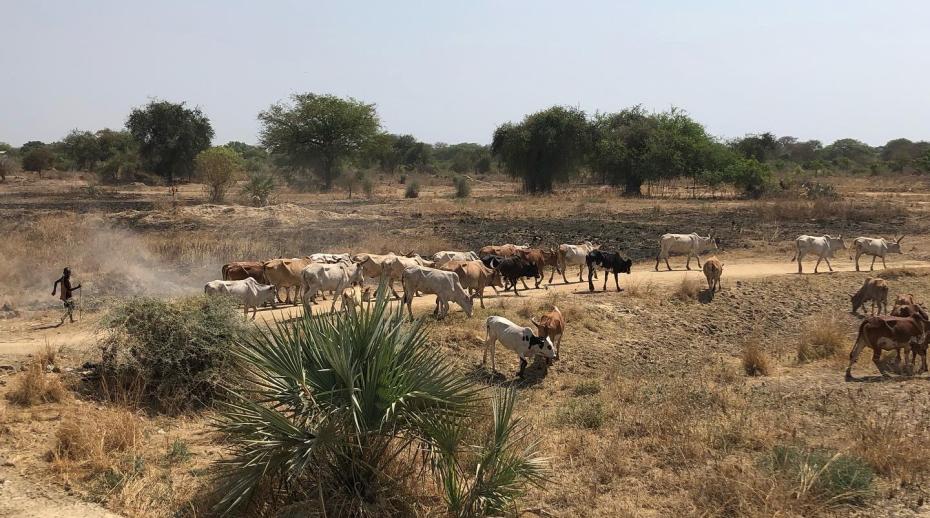
Medelhavsmuseet, Fredsgatan 2, Stockholm.
South Sudan is highly vulnerable to the effects of climate change, including both long-term changes such as the gradual increase in temperature and short-term extreme climate events like increased flooding. These factors have significant implications for peace and security in South Sudan. Droughts and floods have negatively impacted food security and livelihoods by contributing to resource scarcity, which in turn increases competition between pastoralists and farmers who rely on grazing land and water resources. Climate-related livestock losses, combined with existing rivalries, increase the risk of cattle raiding, which can lead to retaliation, communal conflict, displacement, deepening intercommunal rivalry and the formation of armed groups.
Additionally, South Sudan is currently facing one of the worst hunger crises globally, which is attributed to ongoing violence, climate shocks and a widespread economic crisis. The repeated exposure to conflict and climate change events is eroding households’ coping mechanisms and the resources needed for recovery. The most vulnerable groups in society are the hardest hit, with children and youth experiencing harm such as injuries, death, forced displacement, hunger and trauma resulting from extreme weather events. Unfortunately, their voices are often overlooked. Furthermore, climate change impacts undermine the rights of children and youth, including their rights to life, health, education, leisure and recreation, and food. However, children and youth are often portrayed more as actors of violence than agents of positive change within their communities.
In light of these challenges, Save the Children Sweden and the Stockholm International Peace Research Institute (SIPRI) are organized an in-person event on 29 August 2023. The panel aimed to bridge the gap between research and practice by exploring the relationship between climate change, food security and conflict in South Sudan, particularly its implications for children and youth. It also addressed the role of youth in peacebuilding and shaping the country’s future.
Moderator
- Cecilia Chatterjee-Martinsen, Director of the International Programme Department, Save the Children Sweden
Speakers
- Elizabeth Aguil, member of Staff, Save the Children's South Sudan, and former child parliamentarian in South Sudan
- Tobias Axerup, Deputy Head, Division for Multilateral Development Banks, Sustainability and Climate, Ministry for Foreign Affairs, Sweden
- Caroline Delgado, Senior Researcher and Director of the Food, Peace and Security Programme, SIPRI
- Frederik Frisell, Programme Specialist, Humanitarian Unit, Swedish International Development Cooperation Agency
Doors opened at 16:00 for coffee and networking.
For further information, please contact SIPRI’s events team at events@sipri.org.
Click here to register your participation.